Most Popular
Eye Plus

“Gochang nongak first came into my life at a college traditional music band. Since then, I've gone to Gochang every summer and winter to learn the music,” said Kim Mi-jung, a kkwaenggwari player of Gochang nongak, a type of traditional farmers’ music developed in Gochang-gun, North Jeolla Province.
The kkwaenggwari is a metal percussion instrument or gong with a radius the length of the span of one's outstretched hand, and a wooden mallet.
With its high-pitched tone, the Korean traditional instrument plays a leading role in nongak performances, setting the main rhythm that the other instruments follow.

“The sangsoe (kkwaenggwari player) stands in front of the other players and gives signals to them. So the kkwaenggwari has the power to lead the performance,” Kim said.
“I sometimes mischievously lengthen difficult parts or suddenly turn to different rhythms, embarrassing other players and making them laugh. I am attracted to the kkwaenggwari when I think about accomplishing something fun and being filled with joy as I make performances more playful,” she added.
In fact, playing the kkwaenggwari is a hobby of Kim's. For work, she teaches subjects other than music to high school students and it is only during summer and winter vacations that she heads to Gochang-gun, a rural county 240 kilometers south of Seoul.

However, Kim calls nongak one of the closest "friends" she has.
“Gochang nongak has had an enormous influence on my life. It is like a lifelong friend to me. When I feel tired in everyday life, when beginning new tasks or when I miss someone, I play nongak with friends to get rid of my tiredness and fears,” Kim said.
She also says she has learned lessons from her music activities that aid her in teaching students.
“Is there any activity other than nongak in which a group of people make eye contact with the goal of coming together as one like this?” Kim said.
“In nongak performances, we learn how to come together and become a team. Through that I am able to figure out ways to lead and support students both ethically and emotionally,” she added.

Kim says Gochang nongak will continue to be with her throughout her life.
“I do not have a strong sense of mission that I must pass down this traditional music or something like that. Still, it plays a really big part of my life and is now indispensable to me, which is why I continue playing this kind of music,” Kim said.
“I hope Gochang nongak will continue to survive for a long time. I hope those who learn nongak after me and any future generations have the chance to experience the heartwarming emotions, sense of community and friendships that I have felt in the nongak scene,” she added.
Photos by Im Se-jun
Written by Im Se-jun, Lim Jae-seong





![[Herald Interview] How Gopizza got big in India](http://res.heraldm.com/phpwas/restmb_idxmake.php?idx=644&simg=/content/image/2024/11/20/20241120050057_0.jpg&u=20241120164556)

![[KH Explains] Dissecting Hyundai Motor's lobbying in US](http://res.heraldm.com/phpwas/restmb_idxmake.php?idx=644&simg=/content/image/2024/11/20/20241120050034_0.jpg&u=)

![[Kim Seong-kon] Farewell to the vanishing John Wayne era](http://res.heraldm.com/phpwas/restmb_idxmake.php?idx=644&simg=/content/image/2024/11/19/20241119050096_0.jpg&u=)

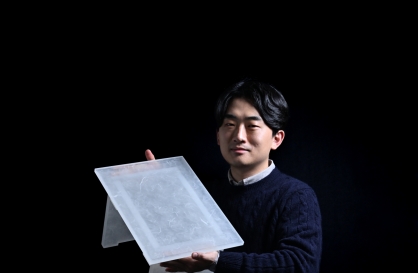
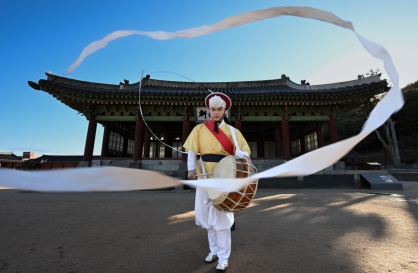
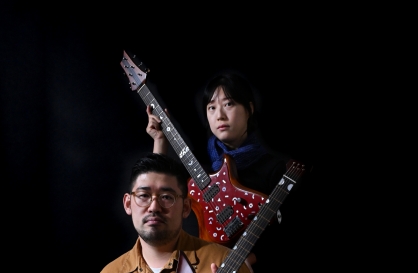
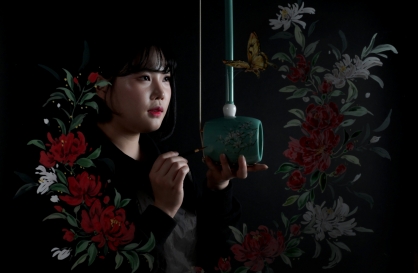
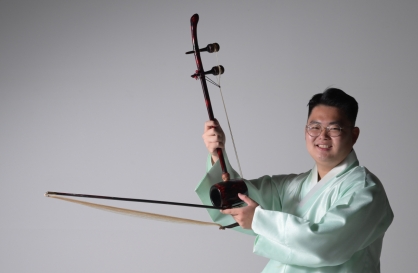







![[Today’s K-pop] Blackpink’s Jennie, Lisa invited to Coachella as solo acts](http://res.heraldm.com/phpwas/restmb_idxmake.php?idx=642&simg=/content/image/2024/11/21/20241121050099_0.jpg&u=20241121172748)